人物經歷
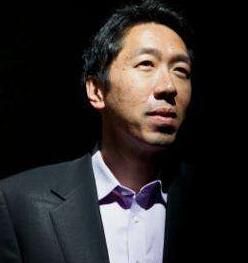 吳恩達
吳恩達吳恩達是史丹福大學計算機科學系和電子工程系副教授,人工智慧實驗室主任。吳恩達主要成就在機器學習和人工智慧領域,他是人工智慧和機器學習領域最權威的學者之一。
2010年,時任史丹福大學教授的吳恩達加入谷歌開發團隊XLab——這個團隊已先後為谷歌開發無人駕駛汽車和谷歌眼鏡兩個知名項目。
吳恩達與谷歌頂級工程師開始合作建立全球最大的“神經網路”,這個神經網路能以與人類大腦學習新事物相同的方式來學習現實生活。谷歌將這個項目命名為“谷歌大腦”。
吳恩達最知名的是,所開發的人工神經網路通過觀看一周YouTube視頻,自主學會識別哪些是關於貓的視頻。這個案例為人工智慧領域翻開嶄新一頁。吳恩達表示,未來將會在谷歌無人駕駛汽車上使用該項技術,來識別車前面的動物或者小孩,從而及時躲避。
2014年5月16日,百度宣布吳恩達加入百度,擔任百度公司首席科學家,負責百度研究院的領導工作,尤其是Baidu Brain計畫。
2014年5月19日,百度宣布任命吳恩達博士為百度首席科學家,全面負責百度研究院。這是中國網際網路公司迄今為止引進的最重量級人物。訊息一經公布,就成為國際科技界的關注話題。美國權威雜誌《麻省理工科技評論》(MIT Technology Review)甚至用充滿激情的筆調對未來給予展望:“百度將領導一個創新的軟體技術時代,更加了解世界。”
2017年3月22日消,百度首席科學家吳恩達(AndrewNg)宣布自己從百度離職,開啟自己在人工智慧領域的新篇章。
研究領域
機器學習和人工智慧,研究重點是深度學習(DeepLearning)。
所獲榮譽
2007年,吳恩達獲得斯隆獎(Sloan Fellowship)。
2008年,吳恩達入選“the MIT Technology Review TR35”,即《麻省理工科技創業》雜誌評選出的科技創新35俊傑,入選者是35歲以下的35個世界上最頂級的創新者之一。
“計算機和思想獎”的獲得者。
2013年,吳恩達入選《時代》雜誌年度全球最有影響力100人,成為16位科技界代表之一。
主要成就
機器學習
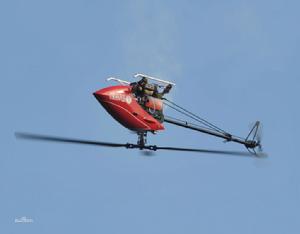 Ng's Research
Ng's Research吳恩達早期的工作包括斯坦福自動控制直升機項目,吳恩達團隊開發了世界上最先進的自動控制直升機之一。
吳恩達同時也是機器學習、機器人技術和相關領域的100多篇論文的作者或合作者,他在計算機視覺的一些工作被一系列的出版物和評論文章所重點引用。
人工智慧
早期的另一項工作是the STAIR (Stanford Artificial Intelligence Robot) project,即斯坦福人工智慧機器人項目,項目最終開發了廣泛使用的開源機器人技術軟體平台ROS。
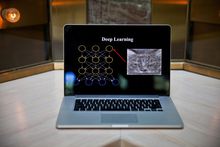 Andrew Ng通過筆記本解析Deep Learning
Andrew Ng通過筆記本解析Deep Learning2011年,吳恩達在谷歌成立了“Google Brain”項目,這個項目利用谷歌的分散式計算框架計算和學習大規模人工神經網路。這個項目重要研究成果是,在16000個CPU核心上利用深度學習算法學習到的10億參數的神經網路,能夠在沒有任何先驗知識的情況下,僅僅通過觀看無標註的YouTube的視頻學習到識別高級別的概念,如貓,這就是著名的“Google Cat”。這個項目的技術已經被套用到了安卓作業系統的語音識別系統上。
線上教育
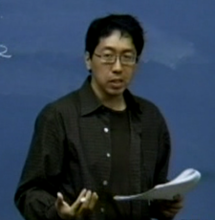 Ng at Machine Learning Class
Ng at Machine Learning Class吳恩達是線上教育平台Coursera的聯合創始人,吳恩達在2008年發起了“Stanford Engineering Everywhere”(SEE)項目,這個項目把斯坦福的許多課程放到網上,供免費學習。NG也教了一些課程,如機器學習課程,包含了他錄製的視頻講座和斯坦福CS299課程的學生材料。
吳恩達的理想是讓世界上每個人能夠接受高質量的、免費的教育。Coursera和世界上一些頂尖大學的合作者們一起提供高質量的免費線上課程。Coursera是世界上最大的MOOC平台。
學術著作
Deep Learning with COTS HPC Systems
Adam Coates, Brody Huval, Tao Wang, David J. Wu, Bryan Catanzaro and Andrew Y. Ng in ICML 2013.
Parsing with Compositional Vector Grammars
John Bauer,Richard Socher, Christopher D. Manning, Andrew Y. Ng in ACL 2013.
Learning New Facts From Knowledge Bases With Neural Tensor Networks and Semantic Word Vectors
Danqi Chen,Richard Socher, Christopher D. Manning, Andrew Y. Ng in ICLR 2013.
Convolutional-Recursive Deep Learning for 3D Object Classification.
Richard Socher, Brody Huval, Bharath Bhat, Christopher D. Manning, Andrew Y. Ng in NIPS 2012.
Improving Word Representations via Global Context and Multiple Word Prototypes
Eric H. Huang, Richard Socher, Christopher D. Manning and Andrew Y. Ng in ACL 2012.
Large Scale Distributed Deep Networks.
J. Dean, G.S. Corrado, R. Monga, K. Chen, M. Devin, Q.V. Le, M.Z. Mao, M.A. Ranzato, A. Senior, P. Tucker, K. Yang, A. Y. Ng in NIPS 2012.
Recurrent Neural Networks for Noise Reduction in Robust ASR.
A.L. Maas, Q.V. Le, T.M. O'Neil, O. Vinyals, P. Nguyen, and Andrew Y. Ng in Interspeech 2012.
Word-level Acoustic Modeling with Convolutional Vector Regression Learning Workshop
Andrew L. Maas, Stephen D. Miller, Tyler M. O'Neil, Andrew Y. Ng, and Patrick Nguyen in ICML 2012.
Emergence of Object-Selective Features in Unsupervised Feature Learning.
Adam Coates, Andrej Karpathy, and Andrew Y. Ng in NIPS 2012.
Deep Learning of Invariant Features via Simulated Fixations in Video
Will Y. Zou, Shenghuo Zhu, Andrew Y. Ng, Kai Yu in NIPS 2012.
Learning Feature Representations with K-means.
Adam Coates and Andrew Y. Ng in Neural Networks: Tricks of the Trade, Reloaded, Springer LNCS 2012.
Building High-Level Features using Large Scale Unsupervised Learning
Quoc V. Le, Marc'Aurelio Ranzato, Rajat Monga, Matthieu Devin, Kai Chen, Greg S. Corrado, Jeffrey Dean and Andrew Y. Ng in ICML 2012.
Semantic Compositionality through Recursive Matrix-Vector Spaces
Richard Socher, Brody Huval, Christopher D. Manning and Andrew Y. Ng in EMNLP 2012.
End-to-End Text Recognition with Convolutional Neural Networks
Tao Wang, David J. Wu, Adam Coates and Andrew Y. Ng in ICPR 2012.
Selecting Receptive Fields in Deep Networks
Adam Coates and Andrew Y. Ng in NIPS 2011.
ICA with Reconstruction Cost for Efficient Overcomplete Feature Learning
Quoc V. Le, Alex Karpenko, Jiquan Ngiam and Andrew Y. Ng in NIPS 2011.
Sparse Filtering
Jiquan Ngiam, Pangwei Koh, Zhenghao Chen, Sonia Bhaskar and Andrew Y. Ng in NIPS 2011.
Unsupervised Learning Models of Primary Cortical Receptive Fields and Receptive Field Plasticity
Andrew Saxe, Maneesh Bhand, Ritvik Mudur, Bipin Suresh and Andrew Y. Ng in NIPS 2011.
Dynamic Pooling and Unfolding Recursive Autoencoders for Paraphrase Detection
Richard Socher, Eric H. Huang, Jeffrey Pennington, Andrew Y. Ng, and Christopher D. Manning in NIPS 2011.
Semi-Supervised Recursive Autoencoders for Predicting Sentiment Distributions
Richard Socher, Jeffrey Pennington, Eric Huang, Andrew Y. Ng, and Christopher D. Manning in EMNLP 2011.
Text Detection and Character Recognition in Scene Images with Unsupervised Feature Learning
Adam Coates, Blake Carpenter, Carl Case, Sanjeev Satheesh, Bipin Suresh, Tao Wang, David Wu and Andrew Y. Ng in ICDAR 2011.
Parsing Natural Scenes and Natural Language with Recursive Neural Networks
Richard Socher, Cliff Lin, Andrew Y. Ng and Christopher Manning in ICML 2011.
The Importance of Encoding Versus Training with Sparse Coding and Vector Quantization
Adam Coates and Andrew Y. Ng in ICML 2011.
On Optimization Methods for Deep Learning
Quoc V. Le, Jiquan Ngiam, Adam Coates, Abhik Lahiri, Bobby Prochnow and Andrew Y. Ng in ICML 2011.
Learning Deep Energy Models
Jiquan Ngiam, Zhenghao Chen, Pangwei Koh and Andrew Y. Ng in ICML 2011.
Multimodal Deep Learning
Jiquan Ngiam, Aditya Khosla, Mingyu Kim, Juhan Nam, Honglak Lee and Andrew Y. Ng in ICML 2011.
On Random Weights and Unsupervised Feature Learning
Andrew Saxe, Pangwei Koh, Zhenghao Chen, Maneesh Bhand, Bipin Suresh and Andrew Y. Ng in ICML 2011.
Learning Hierarchical Spatio-Temporal Features for Action Recognition with Independent Subspace Analysis
Quoc V. Le, Will Zou, Serena Yeung and Andrew Y. Ng in CVPR 2011.
An Analysis of Single-Layer Networks in Unsupervised Feature Learning
Adam Coates, Honglak Lee and Andrew Ng in AISTATS 14, 2011.
Learning Word Vectors for Sentiment Analysis
Andrew L. Maas, Raymond E. Daly, Peter T. Pham, Dan Huang, Andrew Y. Ng, and Christopher Potts in ACL 2011.
A Low-cost Compliant 7-DOF Robotic Manipulator
Morgan Quigley, Alan Asbeck and Andrew Y. Ng in ICRA 2011.
Grasping with Application to an Autonomous Checkout Robot
Ellen Klingbeil, Deepak Drao, Blake Carpenter, Varun Ganapathi, Oussama Khatib, Andrew Y. Ng in ICRA 2011.
Autonomous Sign Reading for Semantic Mapping
Carl Case, Bipin Suresh, Adam Coates and Andrew Y. Ng in ICRA 2011.
Learning Continuous Phrase Representations and Syntactic Parsing with Recursive Neural Networks
Richard Socher, Christopher Manning and Andrew Ng in NIPS 2010.
A Probabilistic Model for Semantic Word Vectors
Andrew Maas and Andrew Ng in NIPS 2010.
Tiled Convolutional Neural Networks
Quoc V. Le, Jiquan Ngiam, Zhenghao Chen, Daniel Chia, Pangwei Koh and Andrew Y. Ng in NIPS 2010.
Energy Disaggregation via Discriminative Sparse Coding
J. Zico Kolter and Andrew Y. Ng in NIPS 2010.
Autonomous Helicopter Aerobatics through Apprenticeship Learning
Pieter Abbeel, Adam Coates and Andrew Y. Ng in IJRR 2010.
Autonomous Operation of Novel Elevators for Robot Navigation
Ellen Klingbeil, Blake Carpenter, Olga Russakovsky and Andrew Y. Ng in ICRA 2010.
Learning to Grasp Objects with Multiple Contact Points
Quoc Le, David Kamm and Andrew Y. Ng in ICRA 2010.
Multi-Camera Object Detection for Robotics
Adam Coates and Andrew Y. Ng in ICRA 2010.
A Probabilistic Approach to Mixed Open-loop and Closed-loop Control, with Application to Extreme Autonomous Driving
J. Zico Kolter, Christian Plagemann, David T. Jackson, Andrew Y. Ng and Sebastian Thrun in ICRA 2010.
Grasping Novel Objects with Depth Segmentation
Deepak Rao, Quoc V. Le, Thanathorn Phoka, Morgan Quigley, Attawith Sudsand and Andrew Y. Ng in IROS 2010.
Low-cost Accelerometers for Robotic Manipulator Perception
Morgan Quigley, Reuben Brewer, Sai P. Soundararaj, Vijay Pradeep, Quoc V. Le and Andrew Y. Ng in IROS 2010.
A Steiner Tree Approach to Object Detection
Olga Russakovsky and Andrew Y. Ng in CVPR 2010.
Measuring Invariances in Deep Networks
Ian J. Goodfellow, Quoc V. Le, Andrew M. Saxe, Honglak Lee and Andrew Y. Ng in NIPS 2009.
Unsupervised Feature Learning for Audio Classification Using Convolutional Deep Belief Networks
Honglak Lee, Yan Largman, Peter Pham and Andrew Y. Ng in NIPS 2009.
Convolutional Deep Belief Networks for Scalable Unsupervised Learning of Hierarchical Representations
Honglak Lee, Roger Grosse, Rajesh Ranganath and Andrew Y. Ng in ICML 2009.
Large-scale Deep Unsupervised Learning using Graphics Processors
Rajat Raina, Anand Madhavan and Andrew Y. Ng in ICML 2009.
A majorization-minimization algorithm for (multiple) hyperparameter learning
Chuan Sheng Foo, Chuong Do and Andrew Y. Ng in ICML 2009.
Regularization and Feature Selection in Least-Squares Temporal Difference Learning
J. Zico Kolter and Andrew Y. Ng in ICML 2009.
Near-Bayesian Exploration in Polynomial Time
J. Zico Kolter and Andrew Y. Ng in ICML 2009.
Policy Search via the Signed Derivative
J. Zico Kolter and Andrew Y. Ng in RSS 2009.
Joint Calibration of Multiple Sensors
Quoc Le and Andrew Y. Ng in IROS 2009.
Scalable Learning for Object Detection with GPU Hardware
Adam Coates, Paul Baumstarck, Quoc Le, and Andrew Y. Ng in IROS 2009.
Exponential Family Sparse Coding with Application to Self-taught Learning
Honglak Lee, Rajat Raina, Alex Teichman and Andrew Y. Ng in IJCAI 2009.
Apprenticeship Learning for Helicopter Control
Adam Coates, Pieter Abbeel and Andrew Y. Ng in Communications of the ACM, Volume 52, 2009.
ROS: An Open-Source Robot Operating System
Morgan Quigley, Brian Gerkey, Ken Conley, Josh Faust, Tully Foote, Jeremy Leibs, Eric Berger, Rob Wheeler, and Andrew Y. Ng in ICRA 2009.
High-Accuracy 3D Sensing for Mobile Manipulation: Improving Object Detection and Door Opening
Morgan Quigley, Siddharth Batra, Stephen Gould, Ellen Klingbeil, Quoc Le, Ashley Wellman and Andrew Y. Ng in ICRA 2009.
Stereo Vision and Terrain Modeling for Quadruped Robots
J. Zico Kolter, Youngjun Kim and Andrew Y. Ng in ICRA 2009.
Task-Space Trajectories via Cubic Spline Optimization
J. Zico Kolter and Andrew Y. Ng in ICRA 2009.
Learning Sound Location from a Single Microphone
Ashutosh Saxena and Andrew Y. Ng in ICRA 2009.
Learning 3-D Object Orientation from Images
Ashutosh Saxena, Justin Driemeyer and Andrew Y. Ng in ICRA 2009.
Reactive Grasping Using Optical Proximity Sensors
Kaijen Hsiao, Paul Nangeroni, Manfred Huber, Ashutosh Saxena and Andrew Y. Ng in ICRA 2009。
人物評價
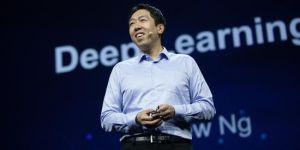 吳恩達
吳恩達吳恩達加盟百度被認為是中國網際網路公司迄今為止引入的最重要的外援。

